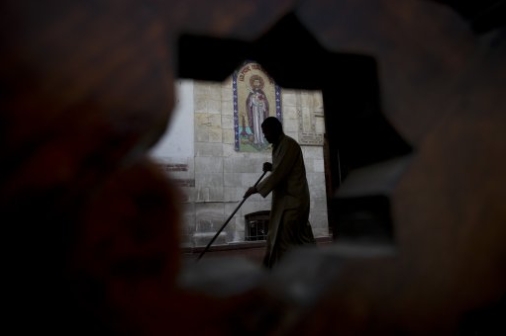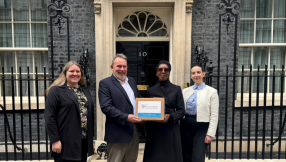
Barnabas Fund has given thanks in its prayer update for a new draft of the Egyptian constitution that grants additional rights to Christians and marks a significant move away from the fundamental Islamic laws that have dominated in the past.
The organisation said the new draft was "good news" for the country's Christians, who have suffered a wave of attacks since the revolution in 2011.
First written during the rule of ousted president Mohamed Morsi, the previous constitution threatened basic human rights, in particular the freedom of religion. The situation has been aggravated by the fact that Egypt is currently struggling with a weakened and unstable political system.
Concerns over the persecution of Christians and other religious minorities in Egypt have grown in recent months, with a congressional hearing recently being held in the US to discuss the escalation of human rights abuses.
Bishop Angaelos, a General Bishop in the Coptic Orthodox Church in the UK, spoke at the hearing in Washington DC on 10 December, and warned that: "The persecution of religious minorities over the past decades has not manifested itself solely in physical attacks, but has frequently been embedded in process and policy, then translated into dealings with citizens on unequal grounds, inevitably having resulted in greater division and marginalisation."
A 50-member constituent assembly was tasked with redrafting the constitution in an attempt to reconcile the demands of secularists, who began the revolution in 2011, and Islamists. The resulting document, finished on 1 December and presented to interim leader Adly Mansour, shows the secularists have won significant sway.
It is written that Egypt will seek to "build a democratic, modern country with a civilian government" and political parties based on religion will be banned, which marks a significant change.
While Islam remains "the religion of the state" and the principles of Sharia remain "the main source of legislation", as they have done since the 1970s, the new document omits the more precise definition of the principles introduced during Morsi's reign.
Freedom of belief will be "absolute" rather than "preserved" as it was originally written, and restrictions on the construction and renovation of church buildings have been removed.
However, the freedom of belief and worship will only be granted to those who follow "divine religions" - Muslims, Christians and Jews. Followers of other minority faiths will not enjoy this freedom and it is unclear whether sharing faiths other than Islam will be allowed by law.
Citizens will have the right to freedom of speech and freedom of assembly, although it is stipulated that these can only be practised "according to the law", which leaves room for the government to eliminate such rights through legislation.
The state also "guarantees the achievement of equality between women and men in all civil, political, economic, social and cultural rights" and provides protection to women from "any form of violence".
The Barnabas Fund is calling for prayers of thanksgiving for the progress that has been made, while also asking for further protections to be put in place for religious freedom for all citizens of Egypt. It is hoped that the new drafted constitution will receive public support in a referendum scheduled to be held in mid-January, ahead of proposed presidential and parliamentary elections.













